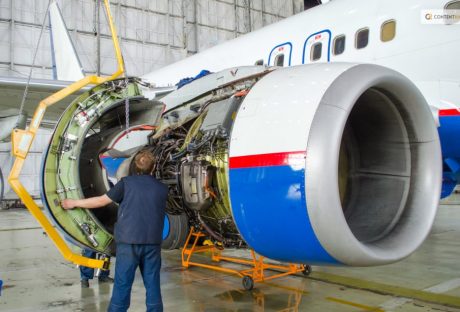When thinking about a career in respiratory care, one of the first things that comes to mind is: What kind of training and certification are necessary to work as a respiratory therapist?
The quick response is that a bachelor’s degree is preferred, but an associate’s degree is necessary. The National Board for Respiratory Care refers to the Registered Respiratory Therapist (RRT) credential as the “standard of excellence” for respiratory care professionals. To obtain it, you must also pass the Certified Respiratory Therapist (CRT) exam. A master’s degree is something many accomplished respiratory therapists eventually obtain to broaden their expertise, abilities, and professional options.
There is, of course, much more to it than that. So, let’s take a moment to breathe deeply before we get into all the specifics of how to become a respiratory therapist.
How to Become a Respiratory Therapist: Overview

One of the fundamental necessities of life is the ability to breathe. Patients rely on respiratory therapists to enhance their quality of life and assist in their recovery due to the multitude of types and causes of breathing problems.
Respiratory therapists collaborate with physicians and nurses as experts in breathing support and monitoring to assess, identify, and manage a wide range of respiratory disorders.
They assist patients with respiratory infections, chronic lung diseases like emphysema, bronchitis, asthma, cystic fibrosis, and more as part of their work. Patients who have had a major accident or who have suffered a heart attack or stroke may also receive emergency care from them. Patients range in age from elderly people to premature babies.
A respiratory therapist’s workday can be both rewarding and difficult. Most therapists have some basic duties regardless of whether they work in an outpatient clinic, hospital, or home care setting. An average day for a respiratory therapist could include:
- Obtain patient medical histories and conduct baseline chest exams.
- Examine gas and oxygen levels in the blood
- Recognize lung conditions and choose appropriate treatments
- Inform patients and their families about therapeutic activities and regimens.
- Conduct patient assessments and suggest modifications to treatment plans to attending physicians.
- Respond to calls for emergency care in case of sudden cardiac arrest or other crises.
The field of respiratory care is very significant, and it may be the best fit for kindhearted people who want to work in lung-related healthcare.
Education and Credentialing on How to Become a Respiratory Therapist

According to the American Association of Respiratory Therapists (AARC), the Commission on Accreditation for Respiratory Care (CoARC) is the body that accredits respiratory therapy schools, and respiratory therapists are required to hold at least an associate degree from a recognized respiratory therapy education program.
Still asking how to become a respiratory therapist? A bachelor’s degree in respiratory therapy opens the door to more employment and career opportunities. However, most practicing respiratory therapists pursue this degree further.
These courses are meant to get students ready for certification in respiratory therapy from the National Board for Respiratory Care. The following qualifications are provided by the NBRC and are thought to be prerequisites for licensure.
- Certified Respiratory Therapist (CRT)
- Registered Respiratory Therapist (RRT)
A license to practice respiratory therapy is a prerequisite for becoming a certified respiratory therapist (CRT) in every state. Nonetheless, there is a growing national movement to mandate that all respiratory therapists with licenses possess the RRT certification. Additionally, the NBRC grants specialized credentials in several fields, such as:
- Adult critical care
- Pediatric and neonatal respiratory care
- Technology for pulmonary function
- Testing for sleep disorders
Many experienced respiratory therapists pursue a master’s degree in respiratory therapy, and according to the AARC, “earning an advanced degree in respiratory therapy has many personal and professional benefits.” According to the AARC, advanced degrees can prepare respiratory therapists for positions as clinical specialists, disease managers, or case managers. They can also serve as a basis for careers as managers, formal educators, or researchers.
Many employers may cover the cost of tuition for staff members who want to pursue bachelor’s or master’s degrees in respiratory therapy. The AARC also provides information on loans and scholarships related to respiratory therapy.
The AARC offers additional career and networking strategies, such as:
- Join your state society to network as well as meet other professionals in the field. Opportunities to volunteer with the RTs, who may be regional or state decision-makers, are one example of this.
- For an informational interview, give your dream job’s HR department a call. This will allow you to introduce yourself and find out more about the company and the qualities they are seeking in a candidate.
- Attending conferences on respiratory therapy. These regional, state, and national conferences for respiratory therapists can offer you a chance to network as well as refresh your knowledge.
- Participate in health fairs as a volunteer or attend events specific to your profession, such as Drive4COPD.
Become a Respiratory Therapist: Prospects for Employment

The need for licensed respiratory therapists is currently in high demand in the United States, mostly because of aging populations and poor air quality. Respiratory therapist employment is predicted to grow by 23% by 2026, according to the Bureau of Labor Statistics (BLS), which is significantly faster than the average growth rate for all industries. Additionally, according to the BLS, the typical compensation for respiratory therapists is $60,280.
The following are some recent job titles for respiratory therapy that can be found on the American Association for Respiratory Care Job Board:
- Respiratory Therapist
- Health and Medical Services Manager
- Respiratory Therapy Technician
- Respiratory Function Technologist
- Pulmonary Rehabilitation Manager
- Respiratory Services Site Manager
- Respiratory Care Practitioner
- Life Flight Neonatal/Pediatric Respiratory Therapist
- Respiratory Therapy Supervisor
- Assistant Professor – Respiratory Care
- Director of Clinical Education, Respiratory Therapy
A bachelor’s or master’s degree is required for some of these positions. In fact, by 2020, 80% of RTs should either have earned or be pursuing a bachelor’s degree, according to AARC, which also notes that graduate degrees are necessary for upper-level management and teaching positions. “How to become a respiratory therapist” is a question more complicated to answer than ask.
Benefits of an Online Degree in Respiratory Therapy

For those employed as respiratory therapists and those who want to work in this industry, online degree programs can be a great choice. For instance, the online Bachelor of Science in Respiratory Therapy program offered by the University of Cincinnati equips qualified Registered and Certified Respiratory Therapists (RRTs) and CRTs for advanced clinical practice, graduate school, and management opportunities.
The program is intended to help you advance your clinical skills and gain a deeper understanding of advanced healthcare operations, logistics, technology, leadership, ethics, and project management. It has a robust curriculum that focuses on advancing respiratory therapy practice and research.
How To Become a Respiratory Therapist?

To become a respiratory therapist, one must fulfill several requirements as a qualified medical practitioner. Read below for information on the training, experience, certification, as well as license needed to work as a respiratory therapist.
Obtain a Degree in Respiratory Therapy
A minimum associate degree in respiratory therapy is required to work as a respiratory therapist. Human anatomy, physiology, and respiratory care procedures and tests are all covered in a typical respiratory therapy education program. Students studying respiratory therapy typically complete clinical hours in addition to their coursework, which gives them practical experience working with patients.
For full-time students, an associate degree typically takes two years to complete. Certain respiratory therapy programs provide expedited pathways that enable students to complete their degrees faster. Naturally, students who study part-time take longer to complete their degrees.
Nonetheless, a bachelor’s degree in respiratory therapy can make you stand out from the competition because some employers might favor hiring respiratory therapists with a higher level of education. For full-time students, most bachelor’s programs require four years.
Select a program that has been accredited by the Commission on Accreditation for Respiratory Care (CoARC), regardless of the degree level you intend to pursue. CoARC’s program directory allows you to determine if the program you are considering is accredited.
Finish Internship
An internship offers more practical experience in respiratory therapy. Even though clinical experiences are completed as part of the degree program. Internships help you build your professional network as well as find mentors. They can also help you land a job once you graduate.
Acquire Certification
The National Board for Respiratory Care (NBRC) offers professional certification applications that you can submit after receiving your degree in respiratory therapy. The Certified Respiratory Therapist (CRT) and Registered Respiratory Therapist (RRT) credentials are the two most widely held certifications in the field. Your concentration may determine whether you need to pursue a more specialized certification. Here is more information about the certification procedure.
Request a License
Alaska is not among the 49 states where practicing respiratory therapy requires a license. The CRT or RRT are the two primary certifications for respiratory therapists. Possession of either one is a prerequisite for licensure in every state that regulates respiratory therapy. States may have different additional licensing requirements, so find out more by contacting the health board in your state.
Salary and Jobs for Respiratory Therapists

As a respiratory therapist, your pay will vary based on your position, employer, level of education as well as experience. As of May 2022, the U.S. Bureau of Labor Statistics (BLS) states that the median yearly salary for respiratory therapists was $70,540.
There ought to be a lot of available jobs in this industry. According to BLS projections, employment of respiratory therapists is expected to grow by 13% between 2022 and 2032, which is significantly faster than average. Salary thus becomes a very crucial part of the discourse when asking “how to become a respiratory therapist.”
How Long Does It Take to Become a Respiratory Therapist?

A common question among students considering respiratory therapy careers is how long it takes to become a respiratory therapist. For professionals pursuing an associate’s degree, becoming a respiratory therapist in the US requires at least two years of training. But the time it takes you to become a respiratory therapist is up to you! If you’re pursuing a bachelor’s degree, then it could take up to four years to become a respiratory therapist.
The learning process does not end there.
Respiratory therapists can continue their education to become more specialized in areas such as management even after they receive their accreditation. Furthermore, advanced degrees in respiratory therapy provide excellent learning opportunities in addition to professional advancement.
The knowledge underlying respiratory care is always changing. This is much like many other subfields in healthcare. Obtaining more education is one way to stay “up to date” on the latest developments.
Is Nursing Easier Than Respiratory Therapy?

Comparing a respiratory therapist to a nurse is like comparing apples to oranges in many aspects.
However, some contend that respiratory therapy may not be as difficult as nursing. In addition to supporting the patient’s entire body, nurses offer general education. In the meantime, respiratory therapists focus exclusively on the heart and lungs. Consequently, the autonomy that comes with being a respiratory therapist may not be present in nursing.
Despite their differences, respiratory therapists and nurses face similar difficulties in their line of work. Whether they are helping those on life support or tending to patients with breathing difficulties, they are on the front lines of patient care.
In addition to the potential for infectious diseases and occasionally demanding work schedules, a career in respiratory therapy can be both fulfilling and taxing.
Wrapping Up
Those who want to work on the front lines of patient care as well as change the healthcare system should consider a career as a respiratory therapist.
The path to becoming a respiratory therapist can be challenging. It will require an associate’s or bachelor’s degree in addition to NBRC-recognized certification. Respiratory therapy is not for the faint of heart, especially when combined with the occasionally long hours and stress of the job.
But aside from the bright prospects for employment and the attractive pay, it’s tremendously fulfilling to know that your skill and attention can save a patient’s life.
If you have thoughts to share or questions to ask about how to become a respiratory therapist, please leave a comment below. We would love to hear from you! If you want more career options, click here.
Learn More About:






















